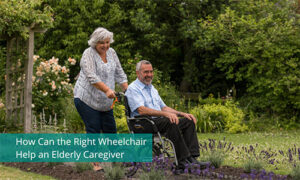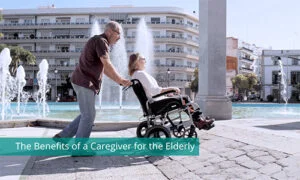“Caregiver”, “carer”, “caretaker” all refer to someone who is providing care of another person, whether to a child or a sick, elderly, or disabled person. There are also different types of caregivers that provide specific care. They may provide care for that person long term or short term, but they are there to support the individual depending on their needs.
What does a caregiver do?
Unlike a registered nurse who has to be formally trained and has a license to perform certain tasks, a caregiver will only help with day to day activities and tasks. Caregivers do not perform medical care like a nurse, who typically only visit a patient’s home for just a few hours a day. However, a caregiver (who is often a close family member or someone who has been hired by the family) may spend all day with the patient to help them with anything from bathing, grocery shopping, and accompanying them on outdoor trips.
Unlike a nurse who will monitor a patient recovering from an illness, a caregiver is more like a companion for the patient. A caregiver could be the answer for seniors or handicapped people who can no longer safely live alone, but still want their independence.

What are the different types of caregivers?
There are different types of caregivers, from those who are hired professionally to family members who volunteer to take on the role. The following types of caregivers are referring mostly to caregivers for the elderly, rather than people who are physically disabled and require full time care.
- Privately hired caregiver: This type of caregiver is typically found through an agent, possible even recommended by a therapist or hospital. They have often been background checked and have previous experience as a caregiver. Usually they are hired on a schedule to assist families who cannot give 24 hour care.
- Family caregiver: A family caregiver is a family member that has chosen to take on the role. These could be a spouse, children, or other family member. Frequently, they have another job in addition to their caregiver responsibilities and don’t receive compensation for their caregiving duties.
- Respite caregiver: A respite caregiver is typically used to cover a family’s duties for a break. They can be found through an agency or independently, and it is implied that it is short-term.
No matter the type of caregiver that your loved one needs, it’s helpful to also know the signs to look out for surrounding your loved one that it might be time to hire a caregiver. There are also many economical and social benefits that come with hiring a caregiver that you can learn here. And lastly, if you are looking to hire a caregiver for your loved one, and they are also a wheelchair user, check out KARMA’s top wheelchair picks.
Keep Reading

 Global
Global

